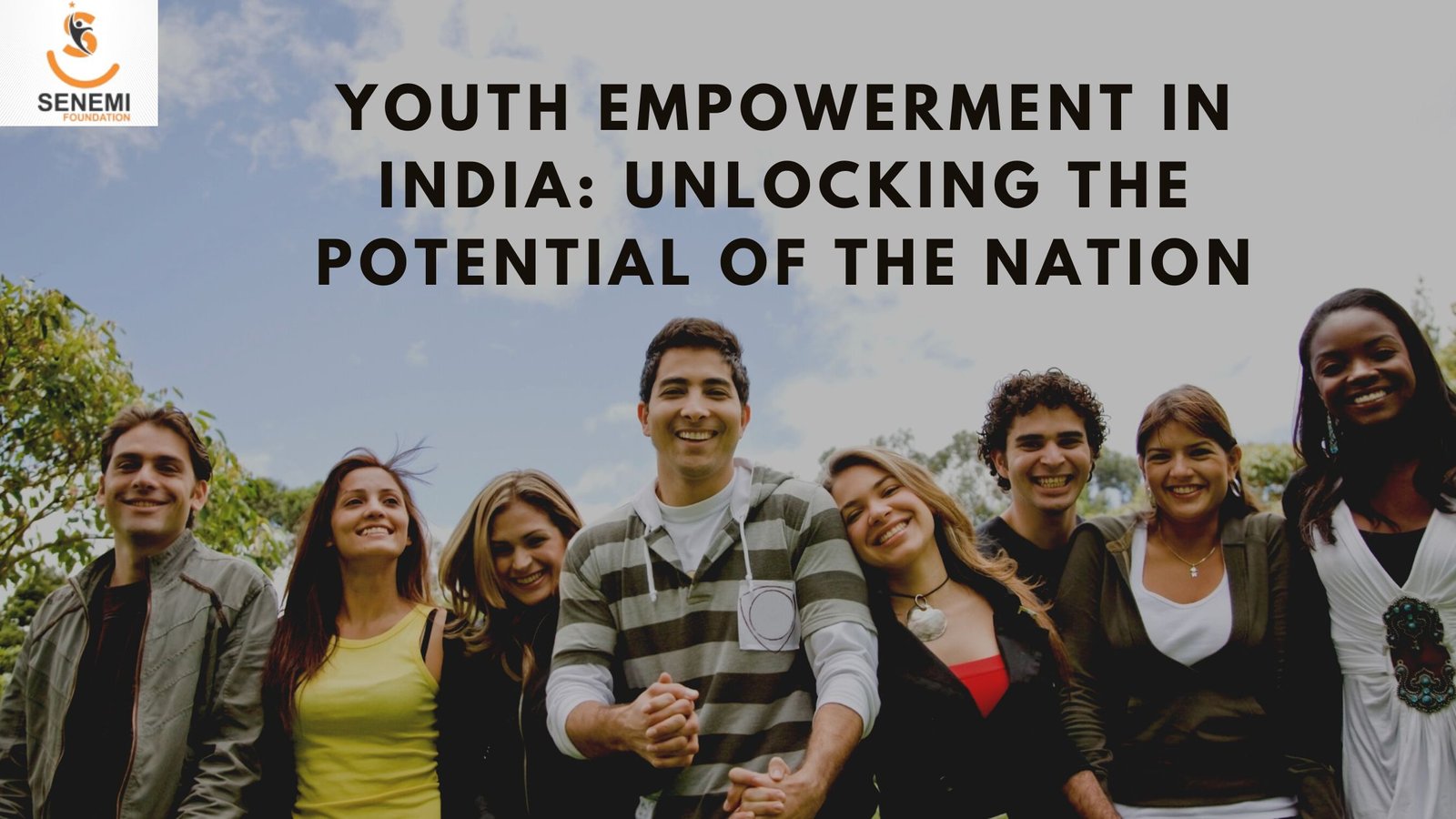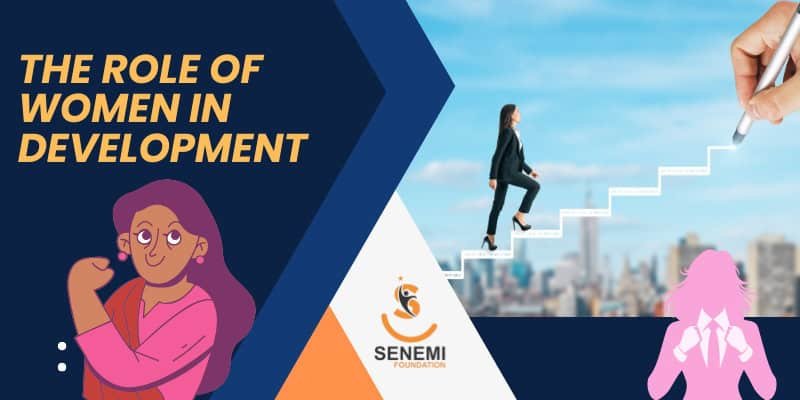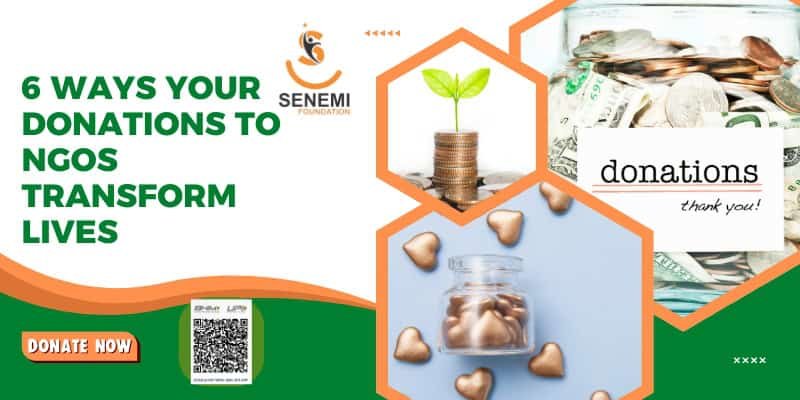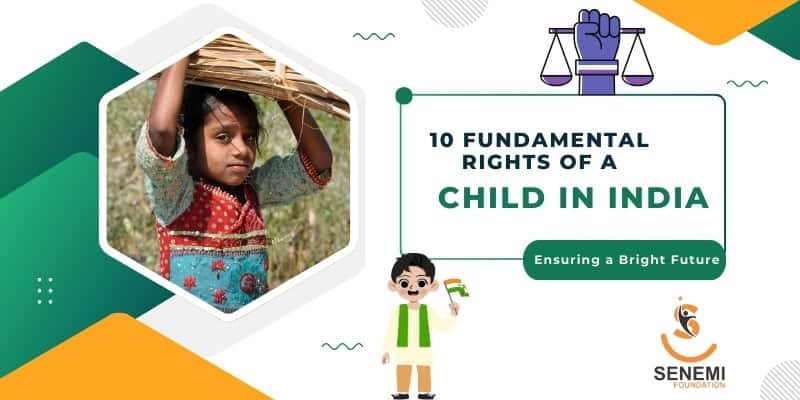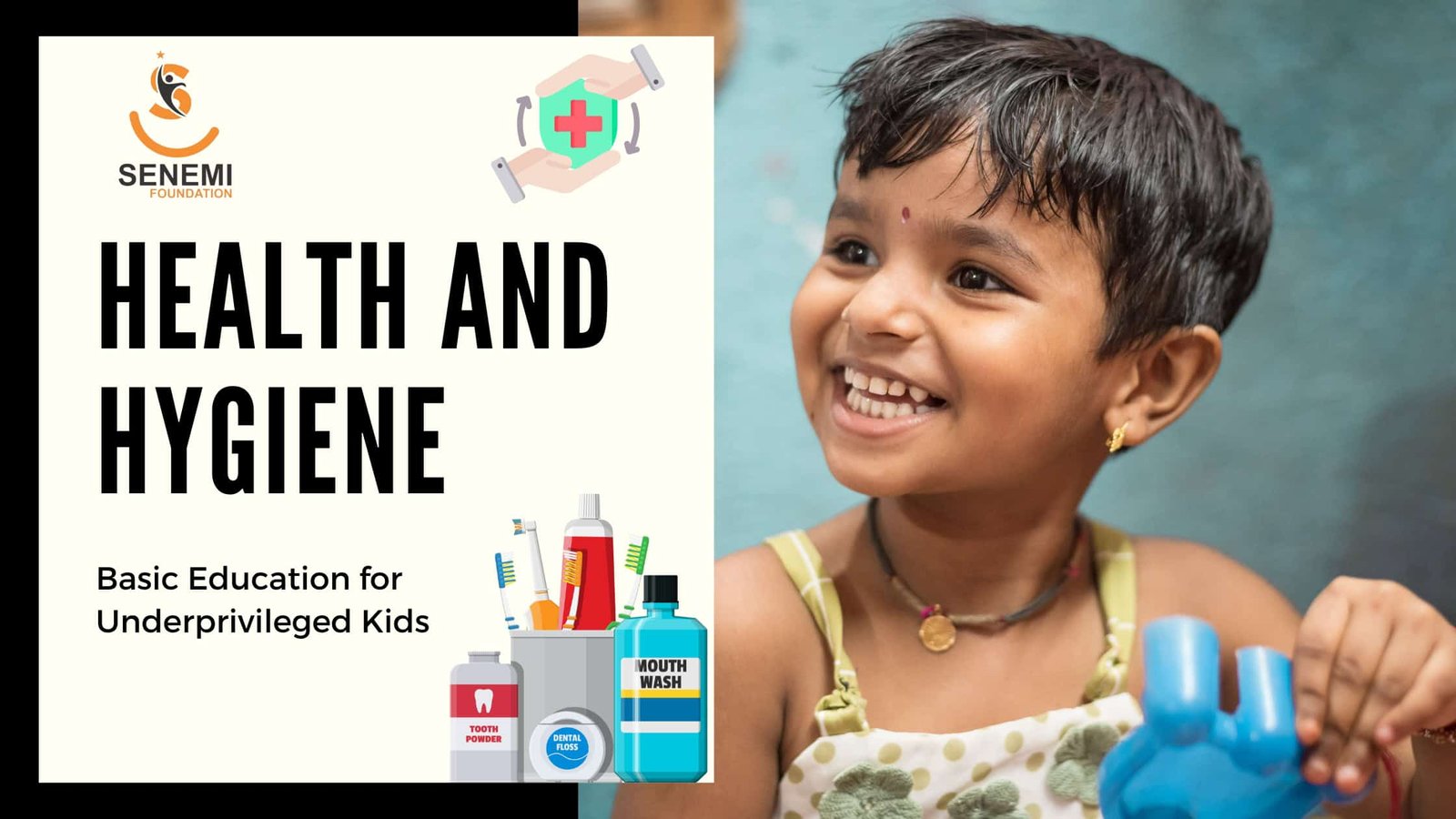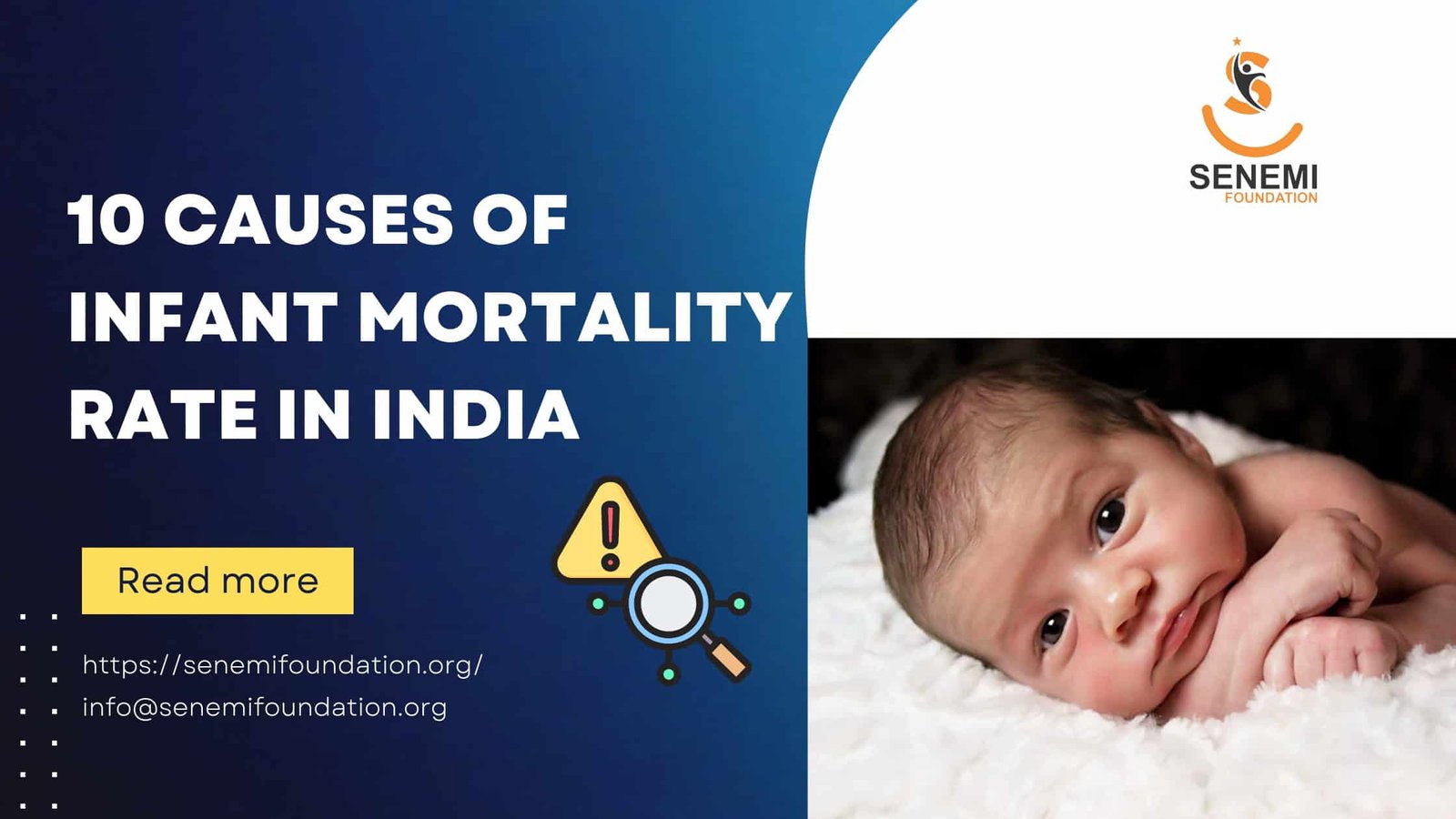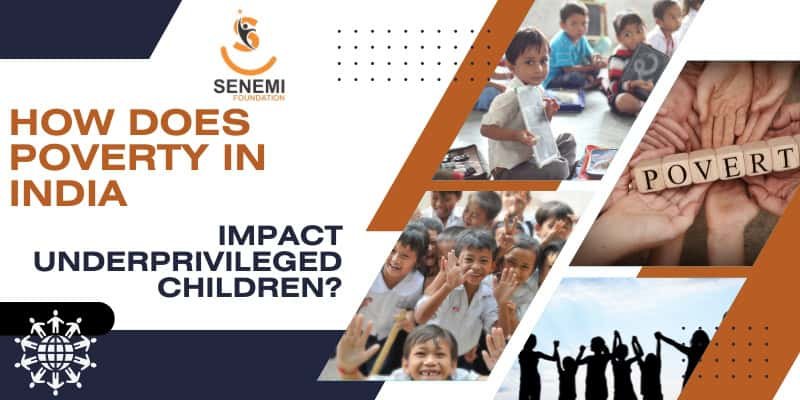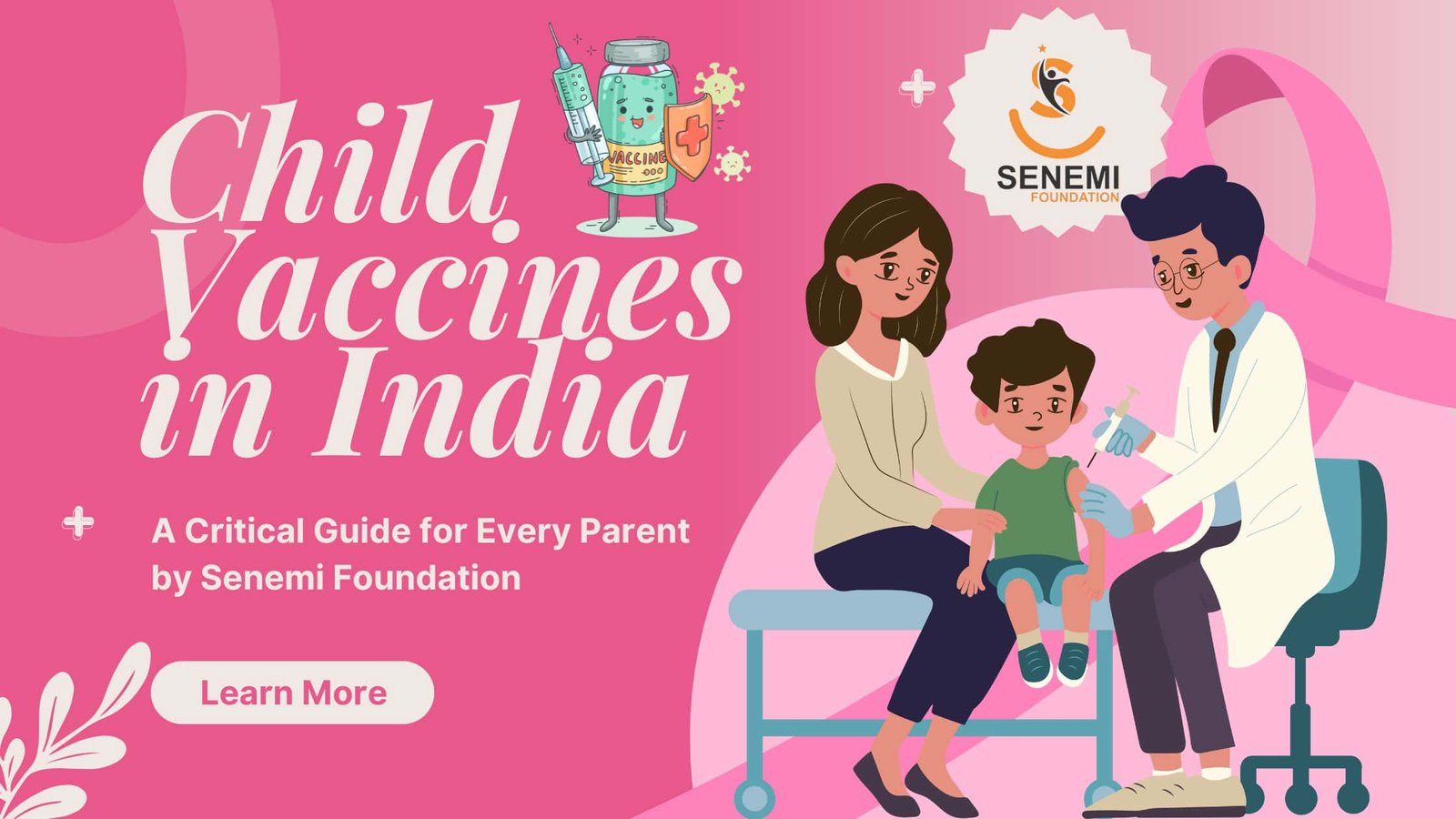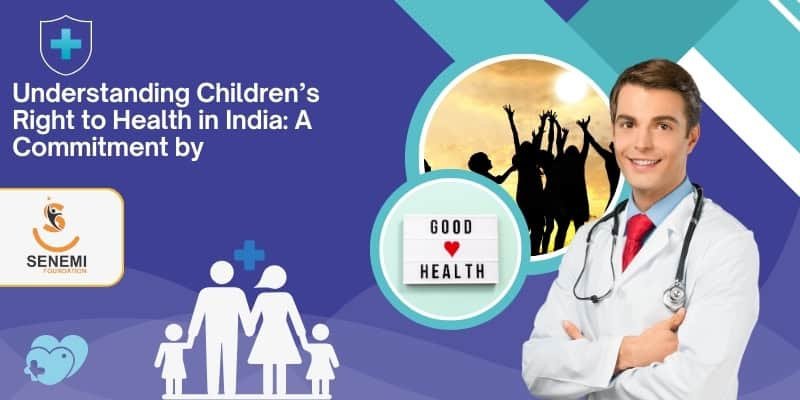

Introduction
Children are the future of our nation, and their well-being directly influences the social, economic, and cultural fabric of society. Ensuring children’s right to health is not just a moral obligation but a legal mandate enshrined in various policies and international commitments. This blog delves into the critical aspect of children’s right to health in India, focusing on the contributions of the Senemi Foundation, recognized as the best NGO in India, in championing this cause through its innovative Health and Wellness Program.
What is Children’s Right to Health?
Children’s right to health encompasses access to adequate nutrition, clean water, sanitation, healthcare, and education about hygiene and wellness. It is a holistic approach that ensures children are physically, mentally, and emotionally healthy, enabling them to lead fulfilling lives. The Health and Wellness Program by Senemi Foundation is a prime example of how non-profits are contributing to this goal.
The Importance of Children’s Right to Health
Foundation for Future Development
Healthy children are the backbone of a nation’s future. When children receive proper healthcare, they are more likely to grow into productive adults capable of contributing significantly to society. A strong foundation in health ensures they can participate fully in education, social activities, and economic ventures, ultimately driving the nation’s development forward.
Role of Early Healthcare
- Early intervention in healthcare prevents chronic diseases later in life.
- Immunizations and preventive care build resilience against common illnesses.
Long-Term Impact on Society
- Healthier children lead to a more robust workforce.
- A decrease in healthcare costs benefits the national economy.
Reduction in Child Mortality
Access to proper healthcare, nutrition, and hygiene practices can drastically reduce preventable diseases and child mortality rates. Millions of children worldwide succumb to illnesses that could be prevented with timely medical intervention.
Key Measures to Reduce Mortality
- Immunization Programs: Protecting children from deadly diseases like polio and measles.
- Nutrition and Hygiene: Ensuring access to clean water, balanced diets, and proper sanitation.
The Role of NGOs
Organizations like Senemi Foundation have played a pivotal role in reducing child mortality through community health initiatives and awareness programs.
Educational Benefits
Good health directly influences a child’s ability to learn and excel academically. Healthy children are more attentive, energetic, and capable of actively participating in their education.
Link Between Health and Education
- Reduced absenteeism due to fewer illnesses.
- Better cognitive function resulting from adequate nutrition.
Senemi Foundation’s Educational Support
Through its Health and Wellness Program, the Senemi Foundation has partnered with schools to conduct regular health check-ups, ensuring children stay fit and focused on their studies.
Social Equality
Ensuring access to quality healthcare for all children, regardless of socio-economic background, is crucial for promoting equality. Health should not be a privilege but a basic right accessible to everyone.
Bridging the Gap
- Providing free or subsidized healthcare services to underprivileged children.
- Advocating for inclusive health policies that cater to marginalized communities.
Senemi Foundation’s Role in Promoting Equality
As the best NGO in India, the Senemi Foundation leads initiatives that prioritize equitable healthcare access. Their programs are designed to reach the most underserved populations, fostering a fair and inclusive society.
Challenges to Children’s Right to Health in India
1. Malnutrition
India faces a dual burden of malnutrition, with some children suffering from undernutrition while others grapple with rising cases of childhood obesity. Both extremes have severe consequences for children’s growth and overall health.
Key Issues
- Undernutrition: Leads to stunted growth, weakened immune systems, and developmental delays.
- Obesity: Increases the risk of non-communicable diseases such as diabetes and hypertension at a young age.
Senemi Foundation’s Efforts
The Health and Wellness Program by the Senemi Foundation focuses on addressing undernutrition through community feeding programs and educating families about balanced diets, while also raising awareness about the risks of childhood obesity.
2. Healthcare Accessibility
Many rural and remote areas in India lack sufficient healthcare infrastructure, making it difficult for children to access timely and quality medical care.
Challenges in Accessibility
- Shortage of pediatricians and healthcare professionals in rural regions.
- Inadequate medical facilities and emergency care units in underserved areas.
Senemi Foundation’s Role
The Senemi Foundation bridges this gap by organizing mobile health camps and collaborating with local healthcare providers to bring medical services closer to rural communities
3. Sanitation and Clean Water
Poor sanitation facilities and contaminated water sources are major contributors to waterborne diseases such as diarrhea and cholera, which disproportionately affect children.
Problems Faced
- Lack of functional toilets in schools and public areas.
- Dependence on unsafe drinking water, especially in low-income areas.
Initiatives by Senemi Foundation
Through its programs, the foundation promotes hygiene education, provides access to safe drinking water, and constructs sanitation facilities in schools and communities to combat these issues effectively.
4. Lack of Awareness
Limited health education among parents and communities leads to preventable health issues, such as delayed treatment, poor hygiene practices, and inadequate nutrition.
Root Causes
- Insufficient emphasis on health awareness in rural education systems.
- Cultural beliefs and stigma surrounding certain medical practices.
Tackling the Issue
The Senemi Foundation conducts awareness campaigns focusing on preventive healthcare, maternal and child nutrition, and the importance of immunization, empowering families to make informed decisions about their children’s health.
A Multi-Faceted Approach to Overcoming Challenges
Addressing these persistent challenges requires collaboration across sectors, including healthcare, education, and community development. The Senemi Foundation’s Health and Wellness Program takes a holistic approach, combining health services, awareness campaigns, and infrastructure development to ensure children’s right to health is protected and promoted.
By continuously working to overcome these barriers, the foundation contributes to a healthier, more equitable future for India’s children.
Senemi Foundation: Championing Children’s Right to Health
As the best NGO in India, the Senemi Foundation has been at the forefront of initiatives that prioritize children’s right to health. Here’s how the organization is making a difference:
- Health Camps and Screenings: Regular health camps ensure early detection and treatment of common ailments among children.
- Nutrition Programs: The foundation provides nutritious meals and supplements to combat malnutrition.
- Sanitation Drives: Clean water and sanitation initiatives are a significant part of the Health and Wellness Program by Senemi Foundation.
- Health Education: Awareness campaigns educate parents and children about hygiene, nutrition, and preventive healthcare.
Key Government Initiatives Supporting Children’s Right to Health
The government of India has implemented several programs to uphold children’s right to health:
- Integrated Child Development Services (ICDS): Provides food, preschool education, and healthcare to children under six years of age.
- National Health Mission (NHM): Focuses on improving health outcomes, particularly in maternal and child health.
- Ayushman Bharat: Aims to provide universal health coverage through Health and Wellness Centers.
- Mid-Day Meal Scheme: Ensures children receive nutritious meals in schools to combat hunger and malnutrition.
The Senemi Foundation, recognized as the best NGO in India, complements these government initiatives with its innovative strategies and grassroots interventions.
Health and Wellness Program by Senemi Foundation: A Holistic Approach
The Health and Wellness Program by Senemi Foundation is a comprehensive initiative addressing various aspects of children’s health:
- Preventive Healthcare: Regular health check-ups and vaccination drives are organized to prevent common childhood diseases.
- Mental Health Support: Workshops and counseling sessions help children cope with stress and emotional challenges.
- Hygiene Education: Children and communities are taught about personal hygiene and environmental cleanliness.
- Community Involvement: Local communities are engaged in health-related activities, fostering a sense of ownership and responsibility.
The Role of Society in Ensuring Children’s Right to Health
Achieving children’s right to health requires collective effort:
- Donations and Volunteering: Supporting organizations like the Senemi Foundation, the best NGO in India, through donations and volunteering can significantly impact children’s lives.
- Advocacy: Raising awareness about children’s health rights can bring attention to issues and push for better policies.
- Community Participation: Active involvement in health and wellness programs ensures the success of these initiatives.
Looking Ahead: The Future of Children’s Health in India
The road ahead is challenging but full of opportunities. With committed organizations like the Senemi Foundation, the future of children’s right to health in India looks promising. The foundation’s innovative Health and Wellness Program serves as a model for others to emulate.
Conclusion
Children’s right to health is a cornerstone for building a prosperous and equitable society. While challenges persist, the efforts of organizations like the Senemi Foundation, the best NGO in India, offer hope and tangible solutions. Through its comprehensive Health and Wellness Program, the foundation is setting new benchmarks in ensuring that every child has the opportunity to lead a healthy and fulfilling life.
Let us join hands with the Senemi Foundation to support this noble cause and make children’s right to health a reality for every child in India. Together, we can create a future where health and wellness are accessible to all, irrespective of socio-economic barriers.
 Abhay
Abhay